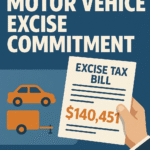The Housing Partnership spent most of its July 8 virtual meeting fine‑tuning strategies to increase affordable housing, from accessory dwelling units (ADUs) to bigger redevelopment projects, while agreeing to keep veteran chair Mary Antes at the helm.
ADU outreach moves ahead
Members Rachel Bratt and Kathleen Boundy said their talks with the Board of Health revealed that “continued dialogue” is needed on septic capacity before any by‑right ADU measure returns to Town Meeting. They plan a fall public forum and will consult the building commissioner on licensing rules. Antes offered to ask local contractors for ballpark ADU costs so residents “know what they’re getting into.”
Cascade, Good Shepherd
Bratt called the long‑stalled Cascade mixed‑income proposal on Route 20 “a derelict property at this point,” but said the developer is waiting for a Department of Environmental Protection ruling on wetlands before resubmitting a 60‑unit plan with 15 affordable apartments. She also said Good Shepherd’s 56‑unit senior development is still awaiting the same agency’s sign‑off, although newly expanded federal low‑income housing tax credits “are the only good thing for housing in that bill.”
Tracking real affordability
Antes reported that the Metropolitan Area Planning Council has formed a peer group for housing trusts. Concord, she noted, has met the state’s 10% subsidized‑housing threshold but discovered that far fewer units are truly deed‑restricted. “It would be interesting to see if we can figure that out” for Wayland, she said. Bratt agreed to assemble local numbers with staff help.
Town Center uncertainty
Member Jean Milburn flagged the listing of Wayland Town Center for sale shortly after the Planning Board mapped an MBTA Communities overlay district allowing up to 75 apartments there. “My guess is they’re using this as a sales incentive,” she said. Bratt reminded the board that state Chapter 40B rules would still require a 25% affordable set‑aside if a new owner pursued housing.















